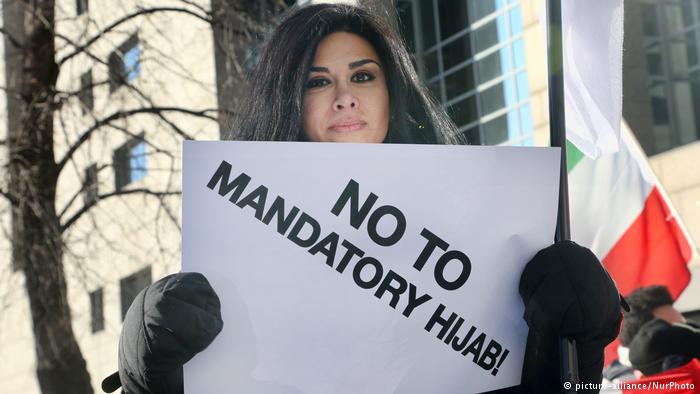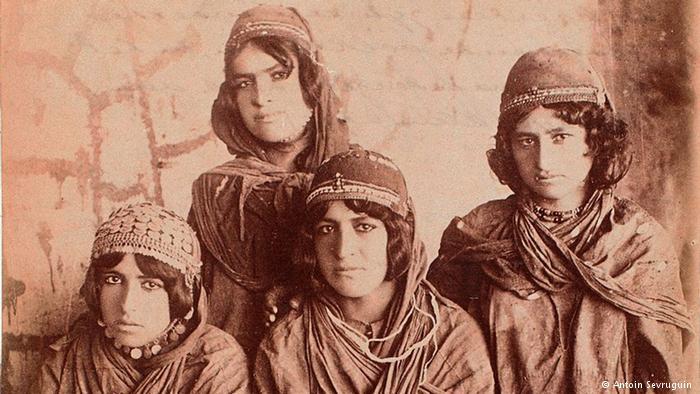No turning back for Iran’s hijab protesters despite crackdown

Protestors hold a sign “No To Mandatory Hijabi” as hundreds of Canadians took part in a protest against the Islamic Republic of Iran in Toronto, Canada, January 6, 2018.
Women’s rights defenders in Iran will continue their fight against the forced wearing of the hijab this year despite a “sinister crackdown” by authorities in 2018 in which dozens were arrested, activists said on Thursday.
Iranian women took to the streets holding their hijabs aloft in protests at the strict dress code that quickly spread on social media last year, leading to a “bitter backlash” by authorities, Amnesty International said in a statement.
“What the last year has shown is that people in Iran, especially women, are no longer afraid to go out and protest, whether in large numbers or through lone acts of protest,” said Mansoureh Mills, Amnesty International’s Iran researcher.
“As the authorities try to clamp down on these peaceful acts of resistance, we are likely to see more and more women and men being arrested, detained and prosecuted for demanding their rights.”
Tara Sepehri Far, Iran researcher at Human Rights Watch, said the crackdown was driven by women increasingly “pushing the limits”.
“Women who are choosing to protest are aware of the risks and are choosing to do so because they want to see a change. I don’t think there is any turning back on these women’s issues – it will only grow,” she told the Thomson Reuters Foundation.
The remarks came in the same week two men were jailed for six years in Iran for supporting the campaign against the strict dress code, according to reports from two human rights groups.
One is married to prominent human rights lawyer Nasrin Sotoudeh, who was detained after representing some of the women protesters in court and faces multiple charges.
Her husband Reza Khandan, who had campaigned for his wife’s release, and Farhad Meysami, an activist, were sentenced to six years in prison according to the Center for Human Rights in Iran (CHRI).
“Iran wants to silence these men by jailing them for standing by women who want the hijab to be a choice, not a requirement,” said Hadi Ghaemi, executive director of CHRI, in a statement.
Under Iran’s Islamic law, imposed after the 1979 revolution, women are obliged to cover their hair and wear long, loose-fitting clothes. Violators are publicly admonished, fined or arrested.
Amnesty said nearly 100 female women’s rights activists were arrested or remained in detention in Iran during 2018.
Source: Thomson Reuters Foundation, Author: Heba Kanso
–






